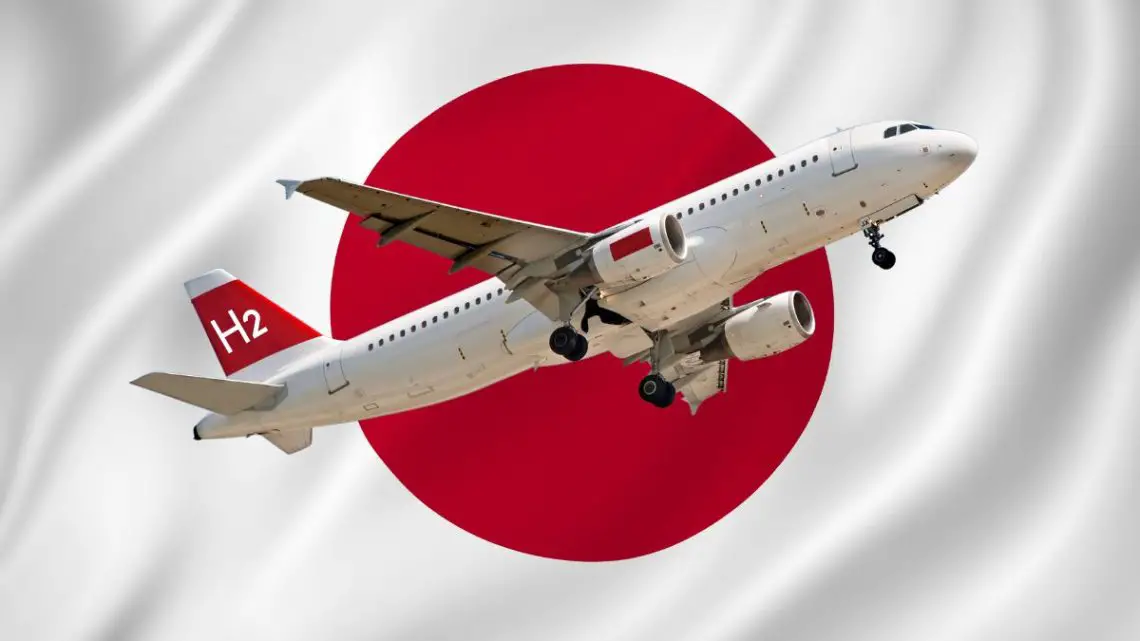
Could a next-gen hydrogen airliner revitalize Japan’s aviation industry?
April 2, 2024The Japanese government has revealed plans to collaborate on an H2 passenger aircraft.
Announced by Japan’s Ministry of Economy, Trade and Industry, the goal of this plan is to use the combined expertise of multiple companies to develop a next-generation hydrogen airliner, while also setting new technology standards for its aviation industry.
Exploring H2 combustion engines.
It’s expected that the project will investigate advanced propulsion systems. The objective being to move beyond jet engines that are currently mainstream, and to explore enhanced tech, with a special focus on hydrogen combustion engines.
Japan’s new strategy reportedly envisions a development team that includes companies leading the way in hydrogen engines. For instance, manufacturers like Mitsubishi Heavy and other parts companies and automakers with H2 expertise. Collaboration with overseas businesses for the hydrogen airliner is also not out of the question.
The future hydrogen airliner could be in the skies by 2035.
Investments into this aviation project total JP¥5 trillion ($33 billion), with funding coming from both the private and public sectors. That said, the government is providing more than just funding support for the initiative. It is also supporting the establishment of global technology standards, refining testing methods and stable parts procurement.

If all goes accordingly, Japan aims to introduce the next-gen (possibly) hydrogen airliner by 2035.
Transforming the aircraft industry
Developing innovative aviation technology, be it a hydrogen airliner or some other next-gen product, is important to transforming the aviation industry. Japan’s vice minister of economy, trade and industry, Kazuchika Iwata, said that the objective is to “transform the aircraft industry from being component suppliers” to an industry that can take charge in delivering “value-added products.”
Closing thoughts.
The global aviation industry aims to reach carbon neutrality by 2050. To achieve this aim, the demand for  environmentally friendly materials and tech is ever increasing. Achieving net-zero greenhouse gas emissions in just over 25 years is no small feat. It will take the support of many nation’s governments, like Japan’s, to transform the industry with meaningful decarbonization efforts, such as funding projects related to hydrogen airliner technology, battery electrics and other clean power jet fuel alternatives, among other much-needed zero-emission aviation solutions.
environmentally friendly materials and tech is ever increasing. Achieving net-zero greenhouse gas emissions in just over 25 years is no small feat. It will take the support of many nation’s governments, like Japan’s, to transform the industry with meaningful decarbonization efforts, such as funding projects related to hydrogen airliner technology, battery electrics and other clean power jet fuel alternatives, among other much-needed zero-emission aviation solutions.
Ready to test your knowledge on the most abundant element in the universe? Take our fun and engaging Hydrogen Quiz now!



 HFN News is your leading source for fresh hydrogen and renewable energy updates. Amid the fast-paced growth of hydrogen companies, we provide top-notch news and insights about this exciting sector. Our coverage spans from hydrogen cars to global sustainable initiatives, and we highlight the latest in green jobs and developing hydrogen hubs. We invite you to share your local hydrogen news and explore today’s renewable energy job listings on our site. Thanks for choosing HFN News as your trusted guide to the hydrogen and renewable energy world!
HFN News is your leading source for fresh hydrogen and renewable energy updates. Amid the fast-paced growth of hydrogen companies, we provide top-notch news and insights about this exciting sector. Our coverage spans from hydrogen cars to global sustainable initiatives, and we highlight the latest in green jobs and developing hydrogen hubs. We invite you to share your local hydrogen news and explore today’s renewable energy job listings on our site. Thanks for choosing HFN News as your trusted guide to the hydrogen and renewable energy world!
